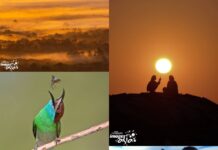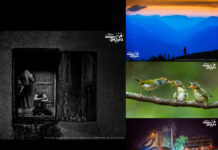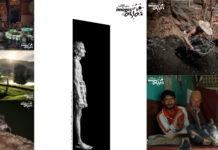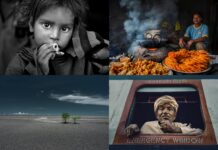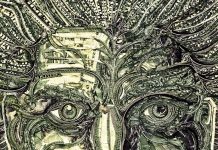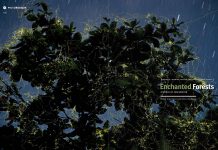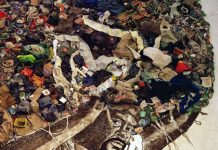A coastal community in Bangladesh battles salinity intrusion on the front line of climate change
Photos and Text by: Mohammad Rakibul Hasan
Global warming has had more severe an impact on certain countries than others. Bangladesh is one such country suffering the disproportionate effects of global warming; it is one of the most vulnerable countries to climate change. The country boasts incredibly diverse ecosystems, such as that offered in the Sundarbans – the largest single block of tidal halophytic mangrove forest in the world – and these rich natural environments provide people living in the coastal lowlands with their livelihoods. The Sundarbans, covering major parts of the Satkhira and Khulna districts, act as something of a shock absorber when natural disasters hit the coastal regions, affording a degree of protection to the communities against the surge of tidal waves and the flooding brought on by cyclones.
But the low-lying coastal areas of Bangladesh face the threat of submergence due to sea level rise as the planet’s temperature continues to warm. This most important ecosystem of the country will be lost if there is a one-metre rise in sea level.
The situation is made worse by the increase in natural disasters such as cyclones and floods. Two recent cyclones, Sidr in 2007 and Aila in 2009, devastated the coastal territories of Satkhira, Barguna, Patuakhali, Khulna and Bagerhat. Gabura, a region adjacent to the Sundarbans in the Satkhira district, stands as a testament to the dreadful effects of climate change in the region. Cyclone Aila hit Gabura and claimed 330 lives; 8,208 people were declared missing. The storm obliterated natural resources and shelters, leaving one million people homeless. An estimated 20 million people were at risk of post-disaster diseases due to Aila, with damages totalling USD552.6 million.
Mohammad Rakibul Hasan is a documentary photographer based in Dhaka, Bangladesh, and is represented by Redux Pictures. He holds a Diploma in Photojournalism from Ateneo de Manila University.
As the rising sea levels encroach upon the lowlands, the coastal areas are experiencing the effects of increased salinity. According to the World Bank, climate change-induced river salinity will lead to shortages of drinking water, and will cause significant changes in the aquatic ecosystems in the southwest coastal areas of Bangladesh during the dry season by 2050.
In the dry season, when the upstream flow of water is drastically reduced, saline water travels up to 240 kilometres inland. Crop yields have been affected as certain plants refuse to grow; food productivity has declined, and work opportunities are becoming increasingly scarce.
The World Bank also reports that the increase in soil salinity may lower the rice yield by 15.6 percent, which will significantly reduce the income of local farmers. Another factor contributing to the rise in salinity is shrimp cultivation, which involves trapping seawater in agricultural lands for extended periods.
The extensive farming systems exacerbate the intrusion of salinity, resulting in the ruin of mangroves, the degradation of land, and the destabilisation of coastal ecosystems.
As agricultural lands continue to be threatened by salinity, people are being forced deeper into the jungle to secure alternative livelihoods, such as honey cultivation
or firewood collection.
Many of these climate change migrants are victim to royal Bengal tigers, and some are kidnapped by pirates. Some have moved to the nearest cities to seek work, while others risk migrating illegally through the Bangladesh-India border.
In an old folktale, the daughter of a fabled king told her father that he was “as dear to her as salt”. However, for these climate refugees, salt has made their life bitter; salt is the tragedy of what they are left with: Salt in their lands, and in their tears.
This photographic project aims to inspire action. Vulnerable countries like Bangladesh must be provided with adequate support so that they can rehabilitate their affected people, and work to protect their resources.
[share]
[project_links]



